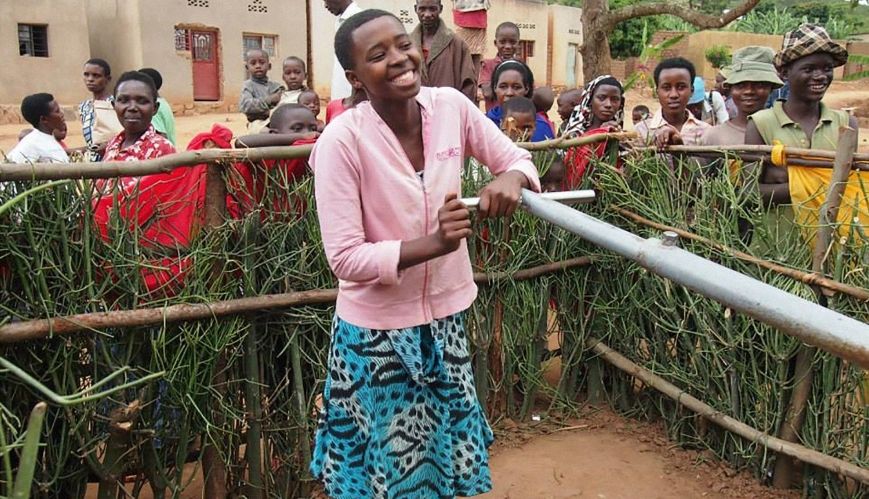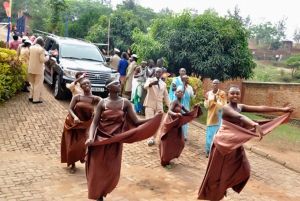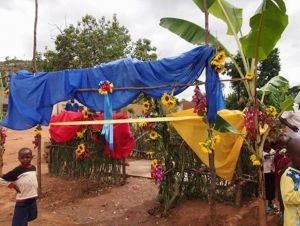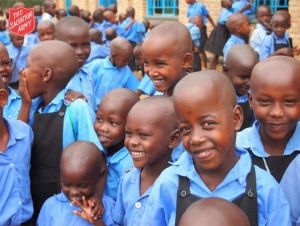Rwanda and Burundi Command - Mission to serve the marginalised

Rwanda and Burundi Command - Mission to serve the marginalised
31 August 2018
Rwanda Burundi Command 2018. WASH hygiene and water projects are a big focus for the Rwanda and Burundi Command.
The Salvation Army became actively involved in Rwanda in September 1994 through relief work as a result of civil war and genocide in the East African nation.
Operations were concentrated in the Kayenzi Commune. Following mission work by officers from Zaire, Uganda and Tanzania in 1995, officers were appointed from Congo (Brazzaville) to develop corps and mission work in Kayenzi Commune.
Kayenzi Corps officially began its ministry on 5 November 1995. The Salvation Army was officially registered as a church in Rwanda on 15 September 2008.
In 1983, Justin Lusombo-Musese (a Congolese born in Burundi) was introduced by a friend to some of William Booth’s writings. Justin and the friend were so enthused they decided to become members of The Salvation Army.
Over the ensuing years they persistently requested International Headquarters to start Army operations in Burundi, and on 5 August 2007 the work was officially recognised with Justin and his wife, Justine Fatouma, as auxiliary-captains.
The Rwanda Region was redesignated Rwanda and Burundi Region in October 2008 and upgraded to Command status on 1 April 2010. 
Spiritual growth, children’s camps, open-air meetings, community engagement and community empowerment are focus areas of the Command. Women’s ministries also play a major role in the Command through their “Mission to serve the marginalised” emphasis.
This includes serving and advocating for children with disabilities and their families, as well as other marginalised people in the community, with compassion, love and support.
Recent women’s ministries seminars included topics such as how to choose a life partner, creating a small garden for income generation, female genital mutilation, and risk management – issues of relevance and significance in this command.
The Officer Training College reopened in February 2017 following a three-year break.
relationship with australia
In the past few years, The Salvation Army Australia has supported six community development projects focused on children and youth in the mostly agrarian and densely populated Rwanda and Burundi Command.
These include:
- Institutional support for preschools
- Youth and children’s clubs
- School health care programs
- Water and sanitation facilities
preschool support project
When the project commenced in 2012, the Rwandan government encouraged schools to provide nutrition feeding programs, as half of the child population under five years old was malnourished.
This project enabled nutritious porridge to be served to the children daily. New learning materials and school supplies were also provided.
wash project 
The WASH (water, sanitation and hygiene) project* aimed to supply safe water sources for the village, and six latrines for the preschool, to improve health in Rubirizi, Rwanda. Before the project, the locals used to walk 6km through rough terrain to reach the nearest water pump.
“The project raised the profile of The Salvation Army, which resulted in building a deeper relationship with the local government and community,” said Stephanie Gradwell, International Development Project Coordinator.
youth project
This project focused on support for returning Rwandan youth who fled to Tanzania or Uganda during the civil war. Many of the children are orphaned or vulnerable, and in need of psychosocial support and skills training.
Stephanie explained that the project enabled four children’s and youth clubs to be formed. Activities included counselling, games and performing arts opportunities, motivational speakers and informative seminars on conflict management, reconciliation and antigenocide ideology.
“This project is a way forward for unity, reconciliation and the establishment of new and healthy relationships between children, youth, adults and the wider community,” she said. “Many of these people are still struggling with their identity.”
instability
While Rwanda has stabilised politically and economically after its harrowing past, Burundi’s political and economic climate hasn’t seen the same success.
“Given the political and economic unrest in both countries, The Salvation Army Rwanda and Burundi Command shows a firm and united front,” Stephanie says. “As they continue to support preschools, microcredit programs for women, youth clubs, vocational training and health projects, their operations will no doubt continue to be needed in the years ahead, as will our support to them.”
Despite the challenges faced in this Command, open-air meetings continue to attract crowds, and more people are finding Jesus. The Command gives glory to God for his endless grace and assured presence with his Church.
* To donate to the 2019 Self Denial Appeal go to https://selfdenial.info/au/
